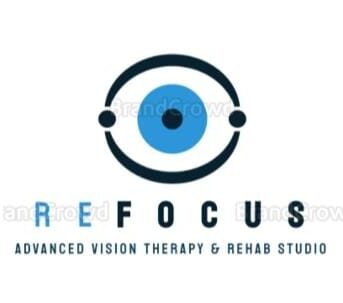Vision Therapy is a customized, non-surgical treatment program designed to improve visual skills and abilities. It involves eye exercises, activities, and sometimes specialized lenses or devices to train the brain and eyes to work better together. It is often compared to physical therapy, but for the eyes and visual system.
👁️ What Does Vision Therapy Address?
Vision therapy helps treat functional vision problems, including:
🧠 Binocular Vision Disorders
- Convergence Insufficiency: Difficulty keeping both eyes working together at close distances.
- Strabismus (Crossed Eyes): Misalignment of the eyes.
- Amblyopia (Lazy Eye): Reduced vision in one eye not correctable by glasses alone.
📖 Learning-Related Vision Issues
- Visual tracking problems (difficulty following a line of text)
- Eye teaming and focusing difficulties
- Visual memory and processing delays
🧍 Neurological Visual Disorders
- Post-concussion or brain injury visual issues
- Double vision
- Visual motion sensitivity
👓 Other Uses
- Sports vision enhancement
- Developmental visual issues in children
- Visual fatigue from screen use
🔧 What Does Vision Therapy Involve?
A typical vision therapy program may include:
- Eye tracking and focusing exercises
- Computer-based visual training software
- Prism or therapeutic lenses
- Visual-motor integration tasks
- Balance and coordination activities (to integrate vision with body movement)
Therapy is usually conducted:
- In-office with a trained vision therapist, often once or twice per week
- At home, with daily exercises assigned to reinforce progress
Programs are usually personalized and may run for a few months to a year, depending on the condition being treated.
📊 Is Vision Therapy Effective?
✅ Well-supported applications:
- Amblyopia
- Convergence insufficiency (supported by the Convergence Insufficiency Treatment Trial, or CITT)
- Some binocular vision disorders
⚠️ Controversial or unproven applications:
- Dyslexia
- ADHD
- Autism spectrum disorders
Major medical groups like the American Academy of Ophthalmology and American Academy of Pediatrics caution that vision therapy should not replace evidence-based treatments for learning disabilities or neurological conditions unless vision deficits are specifically diagnosed.
🧒 Who Benefits from Vision Therapy?
- Children with reading or visual learning difficulties
- Adults or children with eye strain, blurred vision, or visual fatigue
- People recovering from brain injuries or concussions
- Athletes seeking better visual performance
🏥 Where Is It Offered?
- Specialized vision therapy clinics
- Optometrists trained in Behavioral or Developmental Optometry
- Neuro-optometrists (especially after brain injuries)
